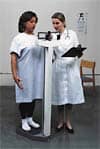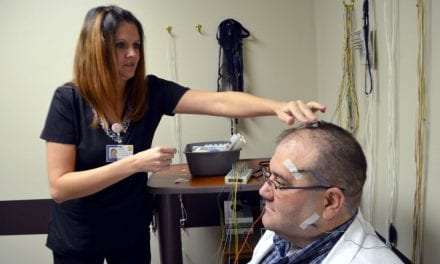Doctors have long known that snoring is hazardous to health for a number of reasons. In addition to restless nights and increased daytime sleepiness, sleep-disordered breathing (SDB) has a series of associated health problems, including increased risk of cardiovascular disease (CVD). While it is not always clear what the association between SDB and a given health problem is, new research exposes that at least one factor may help to explain the increased risk of cardiovascular problems that affects even people with mild to moderate SDB.
Researcher Reena Mehra, MD, MS, assistant professor of medicine at the Case Western Reserve School of Medicine in Cleveland, and colleagues set out to investigate the morning and evening levels of three pro-thrombotic markers, plasminogen activator inhibitor-1 (PAI-1), fibrinogen, and D-dimer, relative to the severity of SDB as defined by the apnea/hypopnea index (AHI) in 537 subjects.
The study appears in the American Journal of Respiratory and Critical Care Medicine.
After controlling for variables including body mass index (BMI), age, sex, and comorbidities, they found that for every 5-unit increase in AHI under 15, there was a corresponding significant increase of about 10% in PAI-1. Similarly, for every 5-unit increase in AHI under 15, fibrinogen significantly increased on average by about 8.4 mg/dL. There was no significant increase in D-dimer in relation to AHI, however.
"In summary, these data suggest that, at low to modest levels of SDB, incremental increases in AHI are associated with increases in levels of two pro-thrombotic biomarkers associated with CVD. Future directions include exploring whether treatment of even mild to moderate levels of SDB improves biomarkers of thrombosis, and performing further work to understand the specific pathways and pathobiology of SDB-related increased risk of thrombosis."




